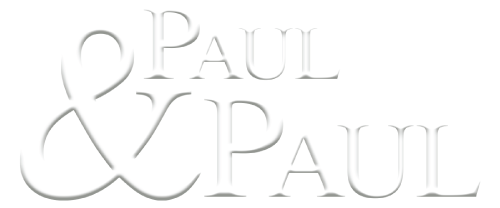If you have invented a new product or process, a technology patent can protect your invention from infringement by others. An intellectual property attorney can provide critical assistance if you need guidance or help with patents.
Innovation relies on the inventions of people who develop new and unique products, processes, and technologies. In today’s technological landscape, technology patents are more important than ever. A patent will ensure that you, as the inventor, have control over your invention’s commercial use and prevent others from using or profiting from it.
While patents are granted to tangible products, they can also be granted to intangible technologies, processes, and digital formats. In fact, the bulk of patents applied for today are by the large tech giants for inventions that may never come to fruition. Although a patent cannot be granted for an abstract idea, a natural phenomenon, or a law of nature, new technologies are beginning to blur the lines between ideas and patentable inventions. Recent patents now protect innovations concerning cutting-edge areas such as artificial intelligence, cybersecurity, and quantum computing.
What Technologies Can Be Patented?
While abstract ideas are not patentable, technology for designs, processes, and products are generally patentable. Over the years, these technology patents have given us breakthrough technologies that are changing our current world, such as solar panels, speech recognition technology, and self-driving cars.
To be patented, an invention must be:
● Unique – Similar existing patents can lead to a rejection.
● Non-obvious – Another person in a relevant field could not have invented it.
● Useful and not just theoretical
● Clearly and completely described so others would be able to reproduce it.
What Patents Are Applicable to Your Technology?
Depending on the nature of your invention, there are three types of patents available to you as an inventor.
A plant patent may be granted to an inventor or someone who discovers processes to asexually reproduce a new and distinct variety of plant. A design patent is for a new and original ornamental design for a manufactured item.
Most technology patents today are utility patents. These are granted to an inventor or someone who discovers:
● A new and useful process
● A machine
● An article of manufacture
● A composition of matter
● An improvement to an existing invention
A utility patent gives the inventor of new technology control of the invention for 20 years from the date of application, after which it will enter the public domain. Over the past five years, the majority of technology patents have been for software, electronics, and computer-related technology.
Applying for a Technology Patent
Once you have determined which type of patent your technology requires, you will need to complete an application with the U.S. Patent and Trademark Office (USPTO). While this is possible to do on your own, it requires understanding what is patentable, the application process, conducting a comprehensive prior patent search, preparing disclosure documentation, and basic knowledge of patent law.
Your innovation is precious intellectual property, and you want to ensure that it is properly protected. While it is not required to have a lawyer file a patent application, the USPTO strongly urges it. If an application is filed incorrectly, your intellectual property rights may be at risk. Technical knowledge and industry experience can be critical to creating and prosecuting a durable patent. A skilled Philadelphia technology patent attorney can help with patents and other matters of intellectual property protection.
Getting Legal Assistance for Your Technology Patent
Applying for a patent is a complex undertaking. At Paul & Paul, we have over 170 years of combined experience representing inventors of new technology and protecting their intellectual property rights. Our team of patent attorneys has significant engineering and science backgrounds, broad patent law expertise, and the technical capability to handle nearly any project. Call us at (215) 568-4900 or schedule a consultation through our online contact form.
This website is designed to provide only general information. The information presented on this website is not formal legal advice. You should not rely on any general information from any source for making legal decisions. Each legal matter is unique and requires specific attention from a qualified and experienced attorney. Unless a representation agreement has been signed with Paul & Paul, we are not your legal representatives.
